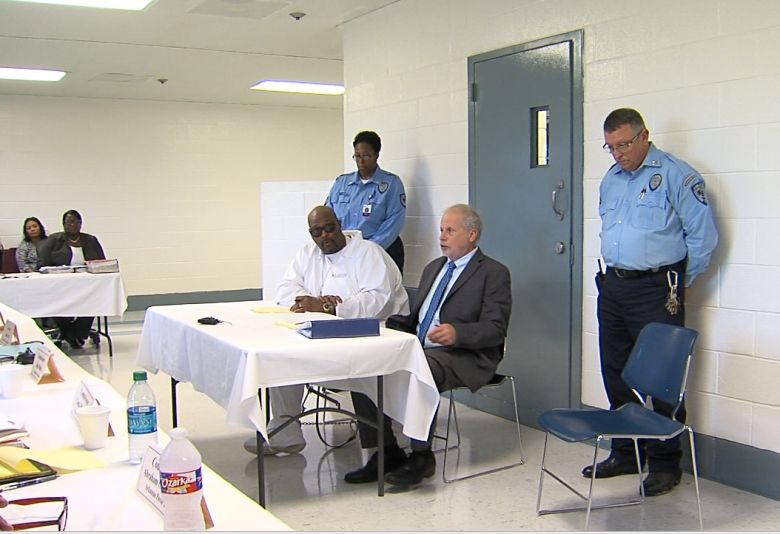On Tuesday, a group of death row inmates in Arkansas filed a lawsuit contesting a new state legislation that permits the use of nitrogen gas during executions.
Act 302 of 2025, that statute, goes into force today.
“The Legislature cannot rewrite those verdicts to impose death by this very different and highly problematic method,” said a lawyer for the death row convicts, citing juries’ stated sentences of execution by lethal injection.
Throughout the legislative process, we wrote about the idea of using nitrogen gas for executions several times. The bill was co-supported by sixty-four other Republicans and was sponsored by Representative Jeff Wardlaw (R-Hermitage) and Senator Blake Johnson (R-Corning). As a second means of carrying out executions in the state, it introduced nitrogen gas asphyxiation. Only fatal injection was permitted prior to Act 302. In 1983, the electric chair was banned by the state.
Over three-quarters of the air we breathe is composed of the inert gas nitrogen. The convicted prisoner is given 100% nitrogen to be executed. The technique’s proponents claim that this causes hypoxia, or a drop in blood oxygen, which results in unconsciousness and death.
Critics claimed the practice violated the U.S. Constitution’s Eighth Amendment since it was uncommon and cruel. They also noted that the bill made no mention of how the gas would be obtained or used, leaving the director of the Arkansas Division of Corrections free to choose the gas or injection for upcoming executions.
Jeff Rosenzweig, a criminal defense lawyer, told the Arkansas Times in February that the method of execution must be decided by legislation and cannot be left to the administrative procedure. That was the lesson learned from the techniques lawsuit that took place almost ten years ago.
The Arkansas Supreme Court invalidated a law that allowed correctional officials to select the execution method in a case known as the “methods litigation.” In 2012, the supreme court ruled that the statute was unconstitutional because it did not allow the Legislature to assign the task of choosing a method of execution to anybody else, so violating the theory of separation of powers.
These criticisms of the new law are expanded upon in today’s complaint. The case claims that Act 302, which offers even less guidance than the version of the act that the Arkansas Supreme Court narrowly upheld in 2015, gives prison officers complete, unrestricted, and undefined authority to decide between nitrogen hypoxia and lethal injection.
Furthermore, the plaintiffs contend that Act 302 illegally delegat[es] the ADC’s authority to decide how and by what means an inmate serving a death sentence is to be executed and remains silent regarding the administration of gas. According to the complaint, this ambiguity simply raises questions and offers no solutions:
How will the ADC decide which approach to take for a particular person? Will a mask be used to administer nitrogen if the ADC choose to use it? A hood? A chamber of gas? What will the gas’s concentration be? How would ADC acquire the gas and how will it confirm its composition and quality? How quickly will the gas flow? How will they be taught, and who will be delivering the gas? How much time will it take to give the gas?
Pulaski County is where the plaintiffs filed their claim. They are requesting that the circuit court decide that Act 302 is unconstitutional, prohibit its application to the plaintiffs, and issue an order prohibiting its application to any prisoners whose offenses took place prior to today.
Between 1992 and 2007, all ten claimants were found guilty of murder in Arkansas courts. The plaintiffs consist of:
- Don Davis, currently the longest-serving inmate on Arkansas s death row, convicted in 1992 for the murder of Jane Daniels in Rogers;
- Ray Dansby, convicted in 1992 for the murder of his ex-wife and another man in El Dorado;
- Andrew Sasser, convicted in 1993 in Miller County for the murder of a gas station clerk;
- Kenneth Isom, convicted in 2001 for rape, murder and robbery in Drew County;
- Mickey Thomas, convicted in 2004 on two counts of murder in Sevier County;
- Thomas Springs, convicted in 2005 in Sebastian County for the murder of his wife;
- Zachariah Marcyniuk, convicted in 2008 for the murder of Katie Wood in Washington County;
- Gregory Decay, convicted in 2007 of two counts of murder in Washington County;
- Stacey Johnson, convicted in 1993 for the murder of Carol Heath in Sevier County;
- Brandon Lacy, convicted in 2001 for murder and aggravated robbery in Benton County.
Circuit Judge Shawn Johnson has been assigned their case. You may find a copy of the complaint here.
It’s dragon-slaying time!
The Arkansas Times, which relentlessly defends the fundamental rights and liberties in our community, stands as a light of truth in an era when critical voices are being silenced more and more. Our commitment to provide uncompromising journalism has never been more important, especially with Arkansas in the center of a broad culture war that is impacting our libraries, schools, and public conversation. We can’t accomplish our goals of defeating dragons and holding those in positions of authority responsible alone. You can guarantee that independent journalism in Arkansas not only endures but flourishes by making a contribution today. We can join the fight and make a difference together.







